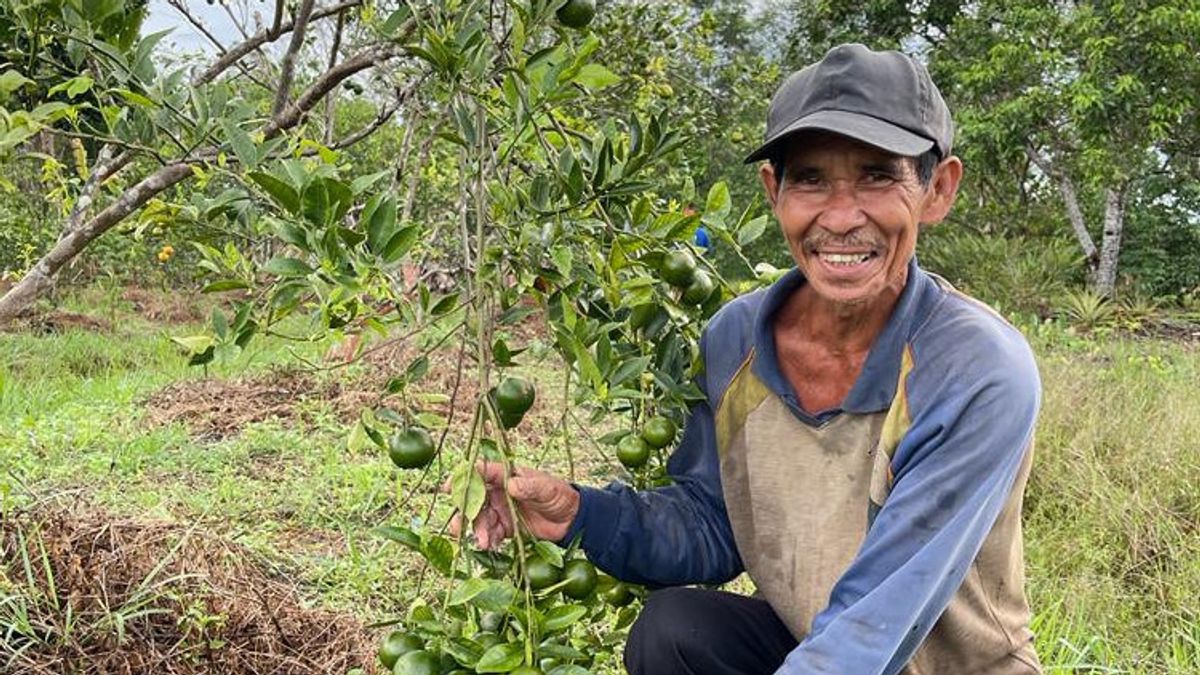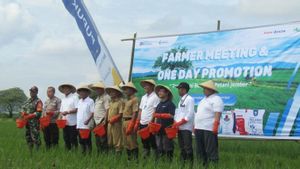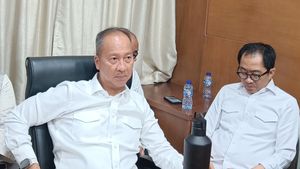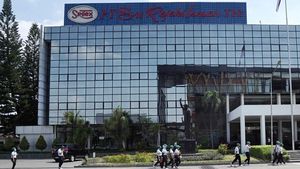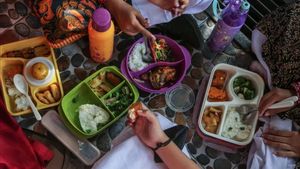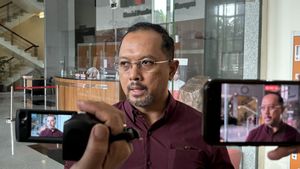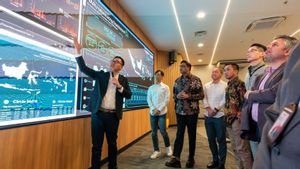JAKARTA - Slowly but surely, public awareness to open land and cultivate crops in an environmentally friendly manner is increasing. One of them is in Central Kalimantan, precisely in the villages around the Katingan and Mentaya rivers.
There, around 800 farmers from 16 villages have taken the initiative to practice sustainable land clearing and farming, namely without burning and without using chemicals or TBTK (No Burning Without Chemicals).
With a total arable area of about 780 hectares, these farmers are members of the Agroecology Farmers School program initiated by PT Rimba Makmur Utama (RMU) through the Katingan Mentaya Project (KMP), an initiative for restoration and conservation of 157,875 hectares of peat forest ecosystem in Central Kalimantan. .
Aliansyah, a vegetable and fruit farmer and participant in the Agroecology Farmers School program, is one example of a farmer who has already enjoyed the benefits of his organic farming yields.
In his garden in Babaung village, Pulau Hanaut sub-district, East Kotawaringin, where he grows oranges, long beans, chilies and several other types of vegetables, Aliansyah shared his experience after participating in the Agroecology Farmers School program.
"Before 2020, I was farming non-organic, and the results I got were far below expectations. The damaged soil conditions due to the continuous use of chemicals caused the capital I had to spend on maintenance to more than double the yield. harvest time. When I was about to give up, I was introduced to the STA program by PT RMU, and invited to take part in a field meeting in Kelampan Village," Aliansyah said in his statement, quoted on Saturday 2 July.
"There, I saw for myself the results of farmers who have implemented agricultural practices without burning and without chemicals, with very satisfying harvests. I was also interested in participating in this program. And apparently, the results I got were very good. The most satisfying is the citrus harvest, where in 3 months I can harvest 1 ton of oranges. Now, my citrus garden always bears fruit all year round, non-stop, and knows no season," he added.
Aliansyah explained, one key to success in the TBTK planting technique is extra care at the beginning to restore the condition of the soil and plants that have been damaged by the chemicals used previously.
He also has to be more diligent in cutting the grass, because in this technique no chemicals are used during the planting process. The cut grass is then used as organic fertilizer which is good for soil fertility.
By practicing environmentally friendly farming methods, Aliansyah and many other farmers in Central Kalimantan have become part of the solution to climate change.
RMU General Field Manager Taryono Darusman said, the peat swamp forest ecosystem is an ecosystem that has the highest carbon stock in the world, and it is very important to maintain it as one of the efforts to overcome the problem of global warming. Communities living around peat forest areas play a major role in maintaining forest sustainability, and any kind of conservation effort will not be effective without their participation.
"That's what moves us at RMU to work with the community to provide alternative ways of farming that are more environmentally friendly, namely without burning and without using chemicals. The Agroecology Farmers School is one manifestation of this collaboration. Through this program, we and our partners and residents work hand in hand to provide solutions for farmers to be able to continue to maintain and increase their income through farming, while ensuring that forest ecosystems are maintained.In this program, farmers are given training on sustainable farming practices, and have access to microfinance provided by RMU," said Taryono.
As is known, land clearing that is often done so far, namely the slash and burn method, has a great risk of causing wider forest fires. In addition, land cleared by burning or using chemicals without control will lose its fertility in the long term, so that it will no longer be effective for farming activities, so farmers are forced to open new land.
"By farming without burning and without chemicals, this can be overcome. Land that is cleared and managed in an environmentally friendly manner does not provide instant results, but will continue to be cultivated and provide sustainable results, so that in the long term it will be more profitable for farmers Farmers do not need to open new land, and the ecosystem will still be protected," said Taryono.
For farmers, said Taryono, changing the farming method that has been applied for a long time to a more environmentally friendly way of farming is not an easy thing. A comprehensive approach and process is needed to build an understanding that TBTK farming is the safest way to sustain farmers' livelihoods and ecosystem sustainability.
"We really appreciate the farmers around the Mentaya and Katingan Rivers who have practiced the TBTK farming method. Starting with 5 farmers who were at the beginning of the program launch, now around 800 farmers have participated. It is clear that this method can produce satisfactory results," he explained.
"We hope that in the future more farmers will practice TBTK, and we are committed to continuing to work with our partners and the community to create a greater positive impact for the community and the entire ecosystem," concluded Taryono.
The English, Chinese, Japanese, Arabic, and French versions are automatically generated by the AI. So there may still be inaccuracies in translating, please always see Indonesian as our main language. (system supported by DigitalSiber.id)
